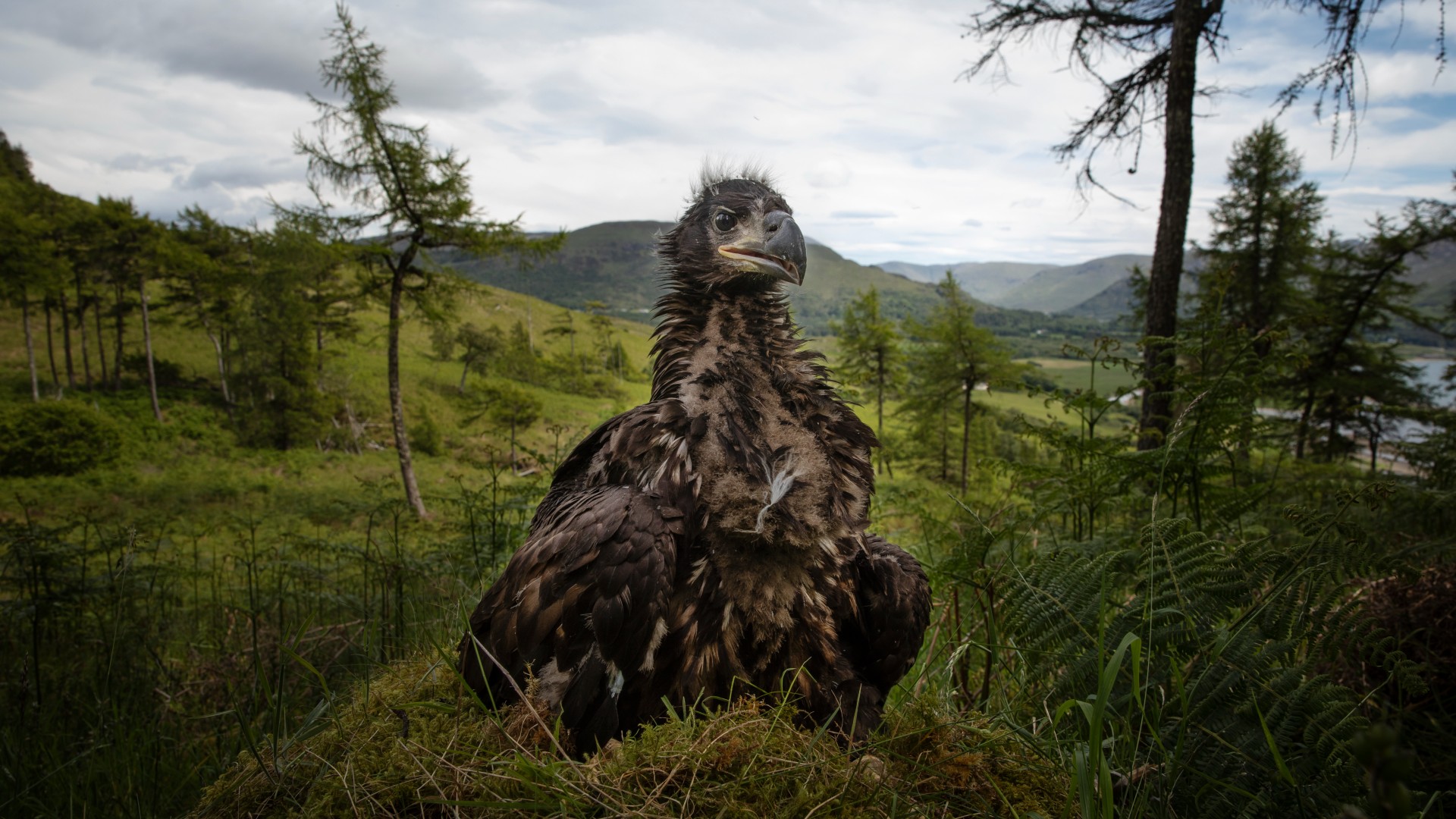The controversy over rewilding in the UK
'Irresponsible and illegal' release of four lynxes into Scottish Highlands 'entirely counterproductive' say conservationists

A free daily email with the biggest news stories of the day – and the best features from TheWeek.com
You are now subscribed
Your newsletter sign-up was successful
Environmentalists have condemned the unauthorised release of four hand-reared lynxes into the Scottish countryside, a move they claim is "counterproductive" to the rewilding movement.
Eurasian lynx have not been seen in the wild in the British Isles for 1,000 years. That was until last week when Police Scotland received reports of two in a forest in the Cairngorms National Park. Both were soon captured, with another pair caught on Friday.
The "covert, illegal and mysterious" release has "raised suspicions of conservationists and reignited a debate over whether the cat can reclaim its natural habitat – and at what cost", said Smithsonian Magazine.
The Week
Escape your echo chamber. Get the facts behind the news, plus analysis from multiple perspectives.

Sign up for The Week's Free Newsletters
From our morning news briefing to a weekly Good News Newsletter, get the best of The Week delivered directly to your inbox.
From our morning news briefing to a weekly Good News Newsletter, get the best of The Week delivered directly to your inbox.
What is rewilding?
Rewilding "involves (but is not confined to) the reintroduction of so-called 'keystone' species on land that is not productive for farming or forestry", said The Telegraph. Keystone species means animals "that have a disproportionately significant effect on their environment in relation to their numbers".
The movement has slowly been gathering pace in Britain over the past decade, with some notable successes. Longhorn cattle have been re-introduced to an estate in West Sussex, while European bison can now be found in Kent. White-tailed eagles and beavers have also returned after centuries.
This comes against the backdrop of a 19% decline in Britain's wildlife species since 1970, with one in six now at risk of disappearing altogether, according to the latest State of Nature report.
Conservationists argue rewilding boosts wildlife diversity and, in the case of predators like the lynx, could provide a free method of culling deer.
A free daily email with the biggest news stories of the day – and the best features from TheWeek.com
A 2023 study in Nature Climate Change found restoring certain wildlife populations might aid in mitigating climate change, as large animals like elephants, whales, bison and sharks are as effective as forests at capturing carbon.
Why is it so controversial?
A "confluence of political and economic factors are key to understanding the controversies" surrounding the return of wolves and lynx to Britain, said Jonny Hanson, research fellow in political ecology at Queen's University Belfast on The Conversation.
In Europe, where they are a protected species, the Eurasian lynx population has recovered from a few hundred in the 1950s to as many as 10,000. But research shows there is mixed support for their return in the UK, reported the British Ecological Society, with strongest opposition coming from farmers who focus on the potential threat to livestock and ground-nesting birds.
The pace of rewilding efforts has proved too slow for some of those "who believe they can turn back the clock and transform the countryside" into a "less-manufactured and more natural society", said The Telegraph.
This has led to a "do it yourself" approach, with devastating consequences, as was the case when beavers were released illegally into farming country in Perthshire and Angus, "leading to fields being flooded, crops being damaged and eventually licences being issued to allow the animals to be killed as pests", said the paper.
What happened with the lynxes?
While the person or persons behind the recent lynx releases are still unknown, wildlife experts cited by the LA Times speculate that it was "either someone who took matters into their own hands because they were frustrated by the slow process of securing government approval for the project, or an opponent who wants to create problems that will block the reintroduction effort".
If it was the latter, they appear to have succeeded, with Peter Cairns, executive director of rewilding pressure group Scotland: The Big Picture, stating that "irresponsible and illegal releases such as this are entirely counterproductive".